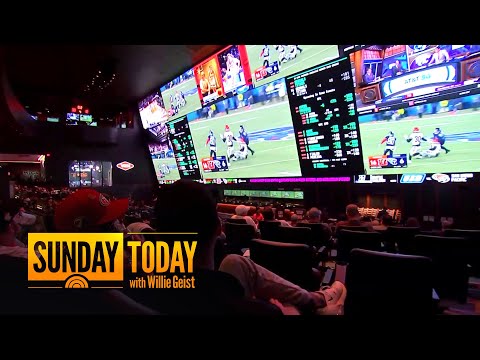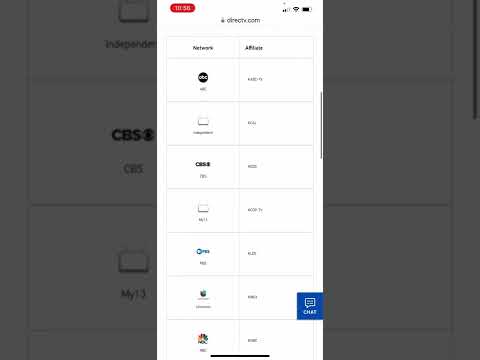Where Is Sports Betting Legal in the United States?
Contents
The United States is a complex legal landscape when it comes to sports betting. Here’s a quick guide to where sports betting is legal in the US.
Checkout this video:
Federal Laws
In the United States, sports betting is only legal in Nevada. There are no federal laws that specifically cover sports betting, but some states have laws that make it illegal.
The Federal Wire Act
The Federal Wire Act of 1961 is a United States federal law that prohibits the operation of certain types of betting businesses in the country. The law was enacted as a part of the fight against organized crime, and it makes it illegal to use wire communications in connection with interstate or foreign commerce for the purpose of placing, receiving, or transmitting bets or wagers on sporting events or contests.
The Federal Wire Act does not explicitly make sports betting illegal, but it does make it illegal to use wire communications in connection with sports betting. This means that businesses cannot use the internet or other forms of wire communication to place or accept bets on sporting events. The law also prohibits the use of wire communications to transmit information about bets or wagers, regardless of whether those bets or wagers are actually placed.
The Federal Wire Act has been interpreted by some courts to apply to all forms of gambling, not just sports betting. However, the act specifically mentions sports betting, and most courts that have considered the issue have held that the act applies only to sports betting. The Supreme Court has never squarely addressed the issue, but in a 2012 case involving an unrelated issue, the court indicated that it is unlikely to revisit the question of whether the Federal Wire Act applies to non-sports gambling.
It is important to note that the Federal Wire Act does not make online gambling illegal. It simply makes it illegal for businesses to use certain means of communication (i.e., wires) to place or accept bets on sporting events. Individual gamblers are not subject to prosecution under the act.
The Unlawful Internet Gambling Enforcement Act
The Unlawful Internet Gambling Enforcement Act (UIGEA) is a 2006 federal law that prohibits gambling businesses from knowingly accepting payments related to online gambling.
The UIGEA does not make online gambling illegal, but it does make it illegal for gambling businesses to accept payments from online gamblers. This has had a major impact on the online gambling industry, as many companies have had to stop accepting payments from US customers.
The UIGEA has been critiqued by some as being ineffective and difficult to enforce. However, it has had a significant impact on the online gambling industry in the US and has made it difficult for US residents to gamble online.
State Laws
The legal landscape of sports betting in the United States is ever-changing. Currently, there are four states – Nevada, Delaware, New Jersey, and Pennsylvania – with legal, regulated sports betting markets. Multiple other states have legislation pending that would allow sports betting within their borders.
New Jersey
In 2011, New Jersey tried to pass a law that would legalize sports betting in the state. The law was passed by the state legislature, but was vetoed by Governor Chris Christie. In 2012, voters in the state approved a referendum that would allow sports betting. The referendum required that the bets be made at casinos and racetracks in the state. In 2014, the law was challenged in court by major professional sports leagues and the NCAA. The case made it all the way to the US Supreme Court, which ruled in 2018 that the law was constitutional and that states could decide whether to legalize sports betting. New Jersey then became the first state to offer legal sports betting.
Nevada
In 1949, Nevada became the first state to legalize bookmaking, taking advantage of the newly developed technology of off-track betting. However, it was not until 1961 that gambling was legalized in casinos. Today, more than 200 casinos dot the state, and gaming is a major contributor to the economy. In addition to traditional table games and slots, casinos in Nevada offer sports betting, horse racing and poker.
Delaware
In May 2018, Delaware became the eighth state to offer single-game and championship betting on professional and collegiate sports. The state lottery oversees sports betting, which is offered at three racetrack casinos in the state. For wagering purposes, Delaware considers all professional baseball, basketball, football, hockey, golf, auto racing, soccer and tennis to be conventional “sports” that are eligible for betting.
Pennsylvania
The first sportsbooks in Pennsylvania opened on November 18, 2018. The state has both physical and online sports betting.
There are ten physical sportsbooks in Pennsylvania, including locations at casinos and horse racing tracks. Casinos with sportsbooks in Pennsylvania are: Harrah’s Philadelphia Casino and Racetrack, Hollywood Casino at Penn National Race Course, Parx Casino, SugarHouse Casino, Rivers Casino, and Valley Forge Casino Resort. The four horse racing tracks with sportsbooks are: Penn National Race Course, Presque Isle Downs & Casino, The Meadows Racetrack & Casino, and Harrah’s Philadelphia Race Track & Casino.
Sports betting is also available online through the following providers: BetAmerica, BetMGM/Roar Digital, FanDuel Sportsbook/Flutter Entertainment, Fox Bet/The Stars Group, Parx Sportsbook/Kambi Group, Play SugarHouse/Rush Street Interactive, Unibet/Kindred Group
The legal age for betting on sports in Pennsylvania is 21.
Sports Betting in Other Countries
Sports betting is legal in the United Kingdom, Ireland, and several other countries. In the United States, however, it is only legal in Nevada. This section will briefly cover the legal status of sports betting in other countries.
United Kingdom
Sports betting is legal and widespread in the United Kingdom. All types of bets, including single bets, multiple bets, and system bets, are allowed. There are at least nine different sportsbooks that operate in the country, and all of them are licensed by the UK Gambling Commission.
The most popular sport to bet on in the UK is football (soccer). Other popular sports include horse racing, cricket, rugby, and tennis. The government requires all sportsbooks to offer odds on all major sporting events, but they are not required to offer odds on every single event.
The UK has a very mature and well-regulated sports betting market. The government taxes all gambling winnings at a rate of 15%, and all sportsbooks are required to pay this tax. This tax revenue helps to fund many important programs and services in the country.
Canada
Sport betting is legal in Canada under certain circumstances. You must be 18 years of age or older and you must be placing your bet with a licensed bookmaker. You are also not allowed to bet on single sporting events. You can only place parlay bets, which are bets on two or more events.
Australia
In Australia, sports betting is legal and very popular. The Australian Sports Betting Council (ASBC) was formed in 1998 to represent the interests of the sports betting industry in Australia.
There are a number of different types of bets that can be made on sporting events in Australia. The most common type of bet is the Win bet, which is a bet on the outcome of a particular event. There are also Place bets, which are bets on whether a particular team or individual will come first, second or third in an event, and Forecast bets, which are bets on the order in which two teams or individuals will finish in an event.
Other types of bets that can be made on sporting events in Australia include Quinella bets, which are bets on two teams or individuals to finish first and second in any order, Trifecta bets, which are bets on three teams or individuals to finish first, second and third in an order, and First Four bets, which are bets on four teams or individuals to finish first, second, third and fourth in any order.
The Australian Sports Betting Council regulates the sports betting industry in Australia and ensures that all betting operators comply with the law.







